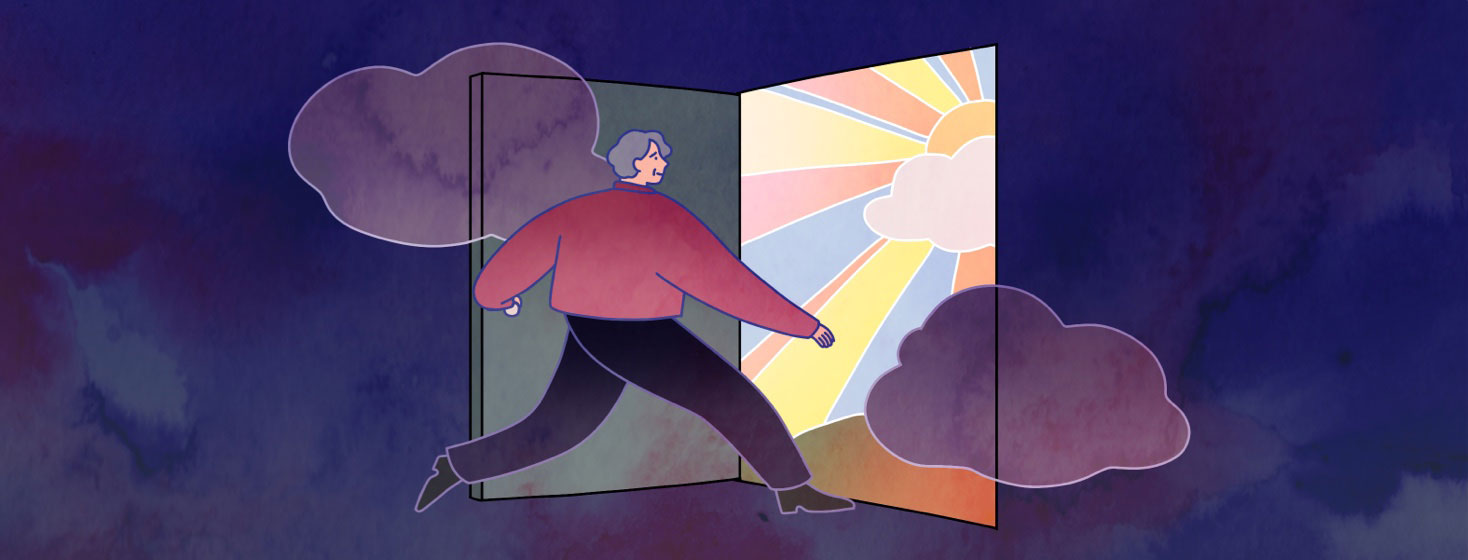My Rare Disease Journey With Hemophilia
Greetings! My name is Shawn, and I'm happy to be a contributing writer for RareDisease.net.
Maybe you are also living with a rare medical condition. Or perhaps a loved one is. Whatever has brought you here… welcome!
My rare disease journey
I was diagnosed with hemophilia around the age of 2. The rare bleeding disorder has impacted my life in challenging and beautiful ways. For instance, I'd like to credit hemophilia for this introduction. Without it, you wouldn't be reading my words right now, and for that, I am grateful. With over 4 decades of experience with hemophilia, I've learned to take the wins wherever I can because we all know how disruptive health woes can sometimes be, whether it's a chronic condition or one of those unwelcomed surprises that land us in a doctor's office.
Current life with hemophilia
I'm at a great place with hemophilia now. I'm in close contact with my medical team and am happy with my hematologist, who, hilariously, shares my fascination with combat sports. The University of Virginia clinic where I receive my care recently adopted a 360-degree approach to healthcare. At each appointment, I not only get to meet with my hematologist, but I also have access to a physical therapist and a psychiatrist. My body, AKA "the old soul shell," is holding up pretty good, all things considered.
Moderate versus severe
Technically I'm considered moderate where hemophilia is concerned. That just means that I self-infuse "a la carte," meaning that if I bump into something or have a nosebleed, I'll treat the bleed with the intravenous clotting factor that I am deficient in. I have a friend who is considered severe. Every day before he goes to work, he treats it as a means to prevent a bump from turning into a gnarly bruise or internal bleed before he'd have time to treat it, a process that can take about 10 minutes or so if you can immediately access your medication. Most people with hemophilia can, especially in recent years, since the product has been made to be more convenient about the temperature it can be stored at.
Early stages of my diagnosis
Because I am moderate, I feel my life has been bookended by hemophilia thus far. The action started fast and furious. My parents noticed strange bruising on me, which they didn't have to deal with on my big brother. Being just 2 years older than me, their experience with their first infant was meant to be a guideline for what was to come with me… Ah, the best-laid plans in life!
Once my parents were informed that I had hemophilia, they did everything in their power to safeguard me from a world that posed far more risks than it did to my brother. As for my brother? I felt like he was the real victim in the whole situation. He wanted a little brother to play with, but he may as well have gotten an antique vase. Over time, as we all started to understand the condition better, the situation began to resolve. A trip to the hospital inspired my parents' change in attitude regarding the level of protection they felt they needed to provide.
My childhood was different from most kids
When I was 5, I had a bleeding incident resulting from a hospital visit. While there, my brother told my mom that I had made him sad. When she asked why, he said it was because she didn't let me have any fun. His words resonated.
Within a couple of years, I was following in my brother's cleat steps, playing organized baseball in the "farm league" under the watchful eye of my coach, who happened to be my dad. I'm so glad that the logic of a big brother wasn't lost on my understandably worried parents and I got to experience a short run as an athlete.
Playing sports with hemophilia
Ironically, the only time I got injured during my 3-year career was when I was sitting on the bench and a foul ball hopped furiously before crashing into my unsuspecting ankle. Who knew baseball was like boxing? "Protect yourself at all times," the ref always says before the action starts. I know I never took my eye off that ball again! Maybe that surprise blow to my ankle was a sign of things to come.
Today, my calling card as far as hemophilia is concerned is my left ankle, which is severely arthritic due to the many minor bleeds that the joint has sustained over my lifetime. This has also resulted in some deterioration in the cartilage that protects the joint.
Most days, I get around fine. Over the last couple of years, incorporating yoga has helped me strengthen the muscles around the joint as well as help improve my balance. Also, I've been way better in my 40s at recognizing a minor bleed that needs treating than I was in my 20s and 30s.
Nobody's journey is the same
I don't beat myself up for taking a longer road to self-sufficiency where hemophilia is concerned. As a kid, a nosebleed or something much more dramatic signaled an obvious problem that needed tending to.
As I got older and my interests shifted from neighborhood football games with friends to listening to music with friends, those surprise bleeds became less of an occurrence. It wasn't until I got older and things like my ankle issue started chirping up that I realized I needed to be more proactive in how I approached living with and thriving with my bleeding disorder.
These days, my eye is very much on the ball where my healthcare is concerned. I'm proud of how far I've come on this journey and look forward to sharing some of the things I've learned in the coming months. Stay tuned and check out all the wonderful people sharing their insights about living with rare diseases.

Join the conversation